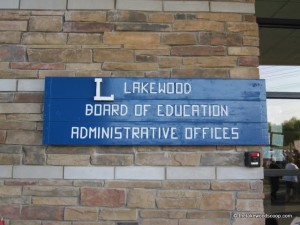 Tenure reform legislation was released 7-0-3 today by the Assembly education panel. The reform was introduced by Assembly Education Chairman Patrick J. Diegnan Jr. “This is meaningful tenure reform that does what’s best for our children while balancing the protection of due process for our principals and teachers” said Diegnan (D-Middlesex). “This is real change that will ensure new teachers are properly trained and evaluated and that tenure charges are handled in a timely and professional manner. We will no longer endure endless tenure squabbles that consume taxpayer dollars meant for education. Instead, this legislation gives school districts cost and time certainty when it comes to removing ineffective teaching staff members. Our focus will be where it should be – making sure we have the best teachers in the classroom.”
Tenure reform legislation was released 7-0-3 today by the Assembly education panel. The reform was introduced by Assembly Education Chairman Patrick J. Diegnan Jr. “This is meaningful tenure reform that does what’s best for our children while balancing the protection of due process for our principals and teachers” said Diegnan (D-Middlesex). “This is real change that will ensure new teachers are properly trained and evaluated and that tenure charges are handled in a timely and professional manner. We will no longer endure endless tenure squabbles that consume taxpayer dollars meant for education. Instead, this legislation gives school districts cost and time certainty when it comes to removing ineffective teaching staff members. Our focus will be where it should be – making sure we have the best teachers in the classroom.”
Under current state law, teachers, principals, school business administrators and other school staffers become tenured after completing three years employment in a school district.
Under the reform bill:
- · Tenure would be provided after four years employment in a school district;
- · A new teacher would spend their first year in a mentorship program during which the new teacher will be partnered with a highly effective teacher for assistance, support and guidance;
- · Each school district would have to annually submit to the education commissioner the evaluation plan it will use to test the effectiveness of teachers and administrators;
- · Any teacher or administrator who receives an ineffective rating on two consecutive annual evaluations may face tenure charges;
- · Any teacher or administrator who receives an ineffective rating on three consecutive annual evaluations must face tenure charges;
- · Binding arbitration would be required for any contested tenure cases, with the arbitrator’s decision becoming binding and not subject to appeal;
- · The Public Employees Relations Commission would choose the arbitrator from a permanent list of 20, eight of which will be designated by the New Jersey Education Association, eight by the New Jersey School Boards Association and four by the New Jersey Principal and Supervisors Association through mutual agreement.
- · Contested cases would no longer be referred to Administrative Law Judges, and the final determination would no longer be made by the education commissioner;
- · The hearing before the arbitrator must be held within 60 days of the case being assigned, and the arbitrator would have 30 days to render a decision.
“This is a significant step toward creating a sustained process to expeditiously remove ineffective teachers from our schools,” Diegnan said. “In those cases where questions arise about a teacher’s effectiveness, school boards will be able to get a timely review and safeguard the quality of education that exists in our schools.”
Diegnan added, “Today is progress and a step in the right direction, but I look forward to continued cooperation with the Senate and all the stakeholders involved to arrive at an agreement everyone can support.” TLS.

I am a teacher in Lakewood pub schools. I am probably in the minority that has no problem w tenure reform. The guidelines that they laid out seem reasonable. My worry is that, this year, there were a ton of non tenure teachers who were either not ever observed or were observed the last week of school on a half day when everything was winding down.
I think the reform would be a great way to weed out teachers who are not good or do not try, but in Lakewood I think it would be an excuse to get rid of good teachers who make a lot of money or teachers that administrators have personal issues with
Beware Democrats bearing LAWS and Reforms.
I am also a public school teacher and don’t feel this reform is unreasonable. The problem I have is when you are being observed by someone who is not an expert in your field that you teach. For example, out of 11 years of teaching in special education, I have been observed by a special education supervisor twice. The other times it was an administrator that was either my principal with only gen ed experience or a curriculum administrator who’s background was in music. Teachers in my district do not get to pick who does our observations. It would make sense for the administrators who are experienced in your field to observe you, but that isn’t the case, and that may cause someone to get an “ineffective” evaluation. There also needs to be guidelines set as to when the observations should occur by (like #1 said- the last week of school is completely unfair). School districts need to get on the ball with how and when they conduct observations.
Those who can … TEACH.
Those who can’t … MAKE LAWS ABOUT TEACHING.